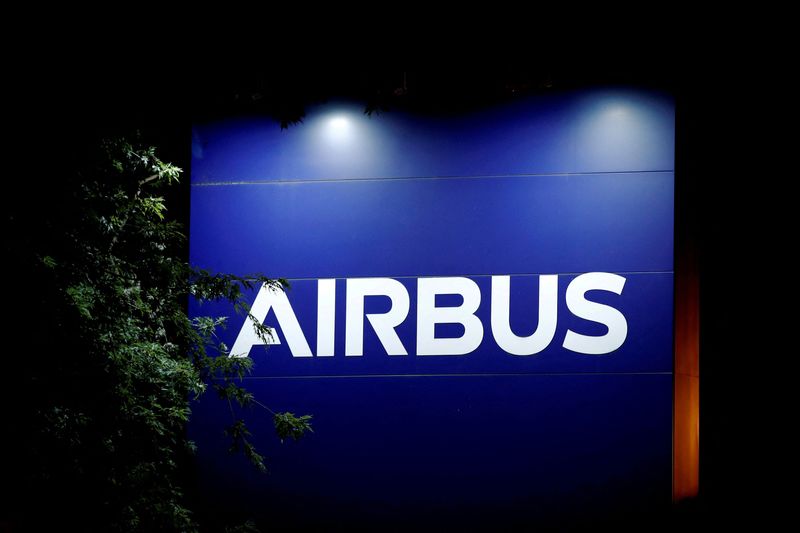By Tim Hepher
PARIS (Reuters) – Europe’s Airbus on Wednesday raised its 20-year forecast for new airplane deliveries, but tempered its predictions for growth in the global airline fleet as carriers focus on replacing more older jets.
The world’s largest planemaker predicted 40,850 deliveries, up from 39,490 in its previous 20-year forecast issued last year.
It lifted its forecast for freighter deliveries to 920 from 890 jets. That implies 39,930 passenger plane deliveries, of which Airbus said 80% would typically be served by single-aisle jets like the Airbus A320neo or Boeing 737 MAX.
Airbus also sharply revised up its forecast for the number of old aircraft to be replaced in the coming two decades to 17,170 units from 15,440.
That is in part a catch-up effect after two or three years of slow plane retirements as well the permanent withdrawal of parked planes that are not returning to service, said Bob Lange, Airbus senior vice president for business analysis and market forecast.
After the number of planes in service plunged dramatically during the pandemic, with thousands of jets parked worldwide, airlines are now flying older planes for longer to compensate for supply chain problems and an abrupt recovery in demand.
With the number of aircraft replacements set to rise, Airbus predicted that 58% of deliveries would serve growth in airline fleets, down from 60% in its previous forecast.
The topic is a sensitive one for the industry as environmental groups question whether airline expansions can be reconciled with the sector’s environmental objectives.
Planemakers say delivering energy efficient new aircraft will make a significant contribution to reducing emissions alongside alternative fuels and leaner operations.
Airbus said the global fleet would more than double to 46,560 aircraft in 2042 from a pre-COVID level of 22,880 units at the start of 2020.
Unusually, however, its forecast for the fleet at the end of the forecast period was lower than the previous estimate of 46,930, as growth is predicted to slow and retirements to increase.
The forecast comes at a time when airlines are flocking to place orders to renew their fleets.
Airbus said its numbers are based on a medium scenario of 3.6% traffic growth, which could face headwinds from environmental regulation and supplies of energy or tailwinds from further liberalisation and a “more stable world order”.
Growth will be strongest in Asia led by India, which remains the world’s fastest-growing market, and China, the forecast said.
(Reporting by Tim Hepher; Editing by Jamie Freed)
